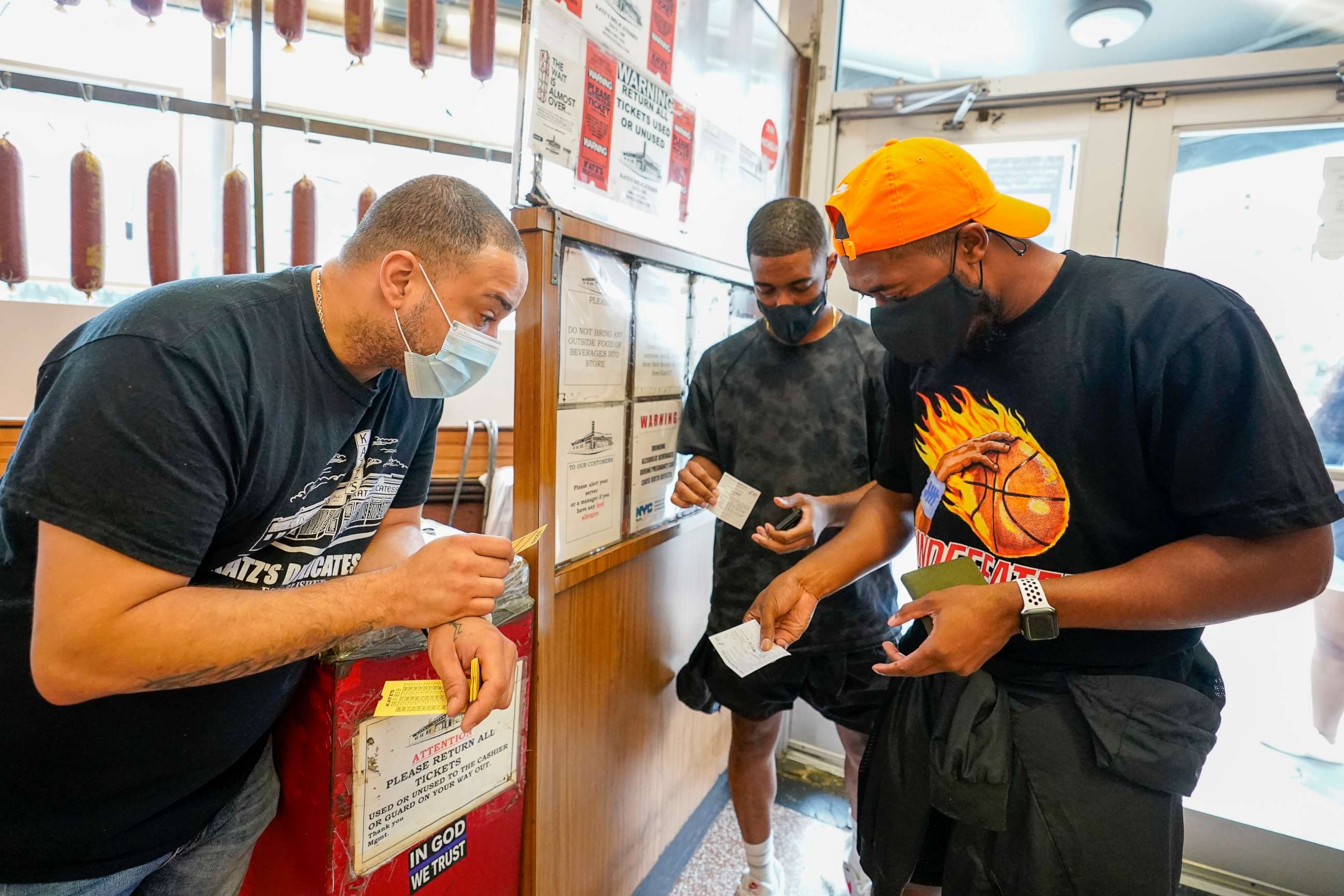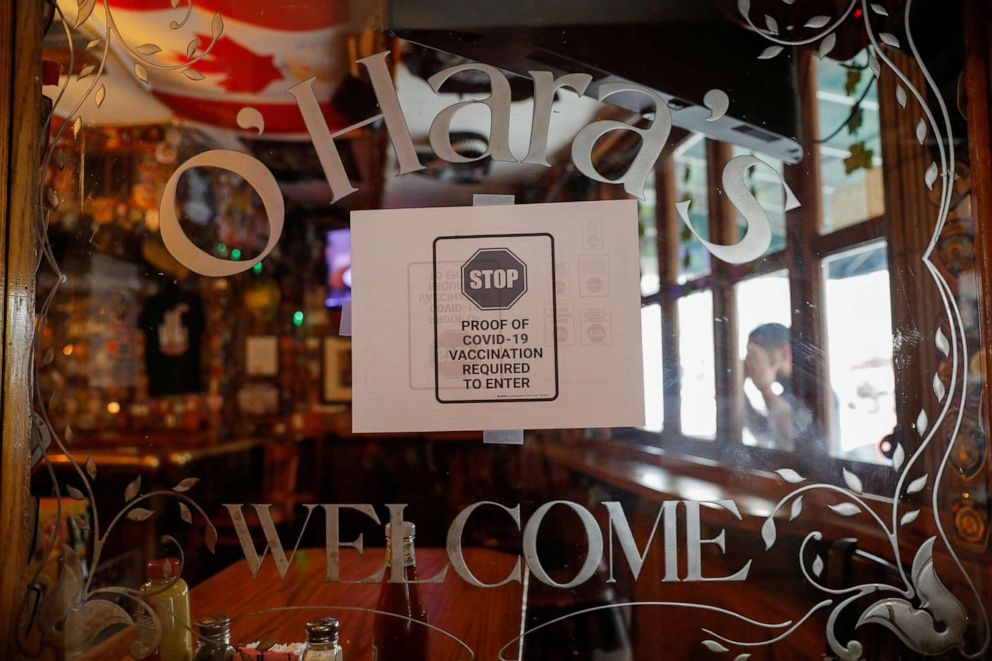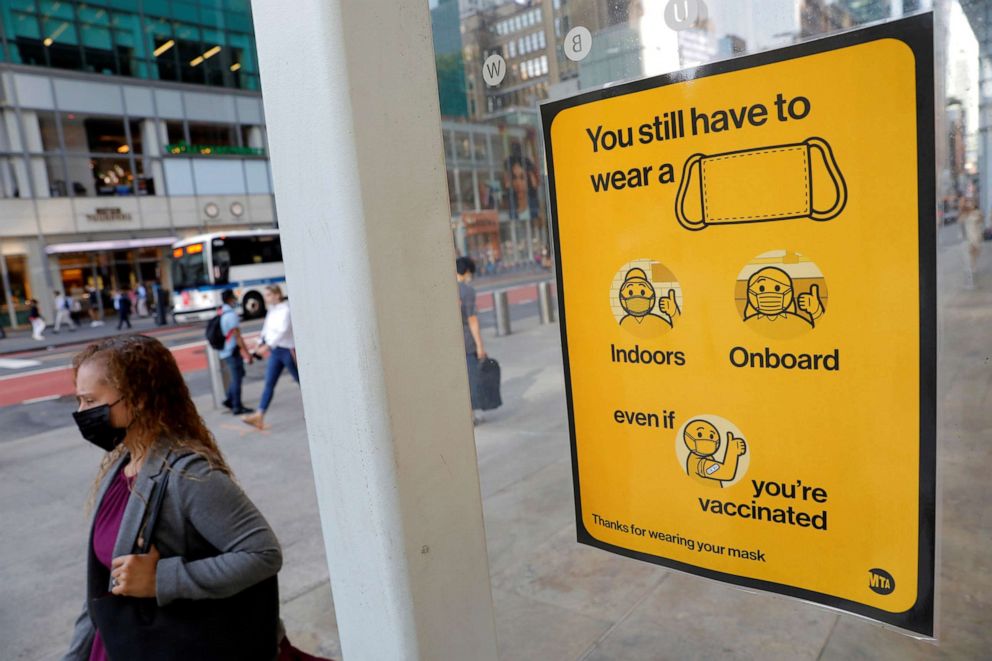For businesses, NYC indoor vaccine mandate means safety -- and headaches
The mandate improves safety, but poses "operational and economic challenges."
New York City's indoor vaccine mandate went into effect Tuesday, making it the first major U.S. city to require proof of COVID-19 vaccination in order to eat or drink inside bars and restaurants.
The new requirement, which applies to everyone 12 and older, doesn't just apply to dining but includes nearly every public indoor activity, from gyms to bowling alleys to movie theaters to concert venues and more, according to the city.
Acceptable forms of vaccination proof include the NYC COVID Safe app, the state's Excelsior Pass, a Centers for Disease Control and Prevention vaccination card (or photo of the card), an NYC Vaccination Record or for those who got vaccinated outside of the New York, an official immunization record.

Beginning Sept. 13, the city will start enforcing the rule and fining businesses that don't comply.
"Any establishment that is subject to the mayoral executive order that's found to be noncompliant would be subject to a fine of $1,000 on the first offense," Dr. Dave Chokshi, the city's commissioner of health, said during a Monday press conference.
"Those fines can escalate with repeated offenses beyond that," he added.
Patrons who attempt to get around the requirement will face penalties. "In terms of the concern about fake vaccination cards, the most important point is that a fake vaccination card constitutes fraud and will be prosecuted as fraud by that individual," Chokshi said.

The indoor mandate comes as the highly transmissible delta variant is surging across the country, with 94% of U.S. counties now reporting high or substantial community transmission in the last seven days, according to data from the Department of Health and Human Services.
"Keeping hospitality workers and customers safe from COVID-19 is an essential step toward protecting public health and preventing harsher restrictions that many restaurants and bars would not survive," Andrew Rigie, executive director of NYC Hospitality Alliance, a nonprofit alliance that represents the restaurant and nightlife industries, said in a statement.
Still, that doesn't mean implementing such measures is easy for businesses. Already understaffed restaurants and bars now have an additional stressor on top of running their business.

"We support the city's efforts to get more New Yorkers vaccinated and we are already helping restaurants across the five boroughs comply with the new requirements," Rigie added, noting that the new policy posed "operational and economic challenges for understaffed restaurants, bars and nightclubs struggling to recover."
Adam Keita, co-owner of Daughter, a cafe in Crown Heights, Brooklyn, said business has been slower in the days since the mandate went into place.
"Small businesses are put into the [role] of being police officers now. And if we aren't police officers, we get fined," he said. If customers comply with the rules, the process isn't any more complicated than checking for ID when purchasing alcohol.
"It adds maybe an extra 10 seconds," he added. "I don't have a problem saying, 'Hey, can I see a vaccination card?'"
If customers resist the rules, however, that's a different story. "We're inviting you into our house," he said of the cafe. "You wouldn't let people in your house and disrespect you."
Vaccination rates in New York City's general population are slightly above the national average. As of Tuesday, 63% of New York City residents had received at least one dose and 57% were fully vaccinated, compared with 51% of all Americans who've gotten at least one shot and 60% who are fully vaccinated, according to data from the city health department and the CDC.
ABC News' Arielle Mitropoulos contributed to this report.




